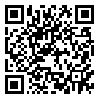BibTeX | RIS | EndNote | Medlars | ProCite | Reference Manager | RefWorks
Send citation to:
URL: http://ijer.hormozgan.ac.ir/article-1-474-en.html
2- Department of English Language Teaching, Ta. C., Islamic Azad University, Tabriz, Iran ,
3- Department of English Language Teaching, Ta. C., Islamic Azad University, Tabriz, Iran
Objective: This study aimed to examine the effects and relative impact of flipped and micro-flipped instruction on the autonomy of Iranian EFL learners.
Methods: A total of 63 female learners from a language institute were selected through the Oxford Placement Test (OPT) and divided into three groups: one control group and two experimental groups. All participants completed an autonomy questionnaire prior to the intervention. The first experimental group received advanced flipped instruction, the second received micro-flipped instruction, and the control group was taught through traditional lecture-based methods. After the instructional period, the autonomy questionnaire was administered again. The collected data were analyzed using analysis of covariance (ANCOVA) to compare post-test autonomy scores while controlling for pre-test differences.
Results: The results revealed no significant difference in learners’ autonomy among the three groups at the pre-test stage. However, significant differences emerged in the post-test. Pairwise comparisons indicated that micro-flipped instruction was more effective than both flipped and traditional instruction in enhancing learner autonomy. Additionally, flipped instruction led to higher autonomy levels than the traditional lecture-based approach.
Conclusion: Both flipped and micro-flipped instructional approaches positively influenced EFL learners’ autonomy, with micro-flipped instruction showing the greatest impact. These findings highlight the pedagogical potential of incorporating technology-supported, student-centered teaching models to promote learner autonomy in language classrooms. The results also encourage language educators and curriculum developers to reconsider traditional teaching methods and design more autonomy-supportive learning environments.
Received: 2025/07/30 | Accepted: 2025/10/12 | Published: 2025/12/1
| Rights and permissions | |
 |
This work is licensed under the Creative Commons - Attribution 4.0 International. |






